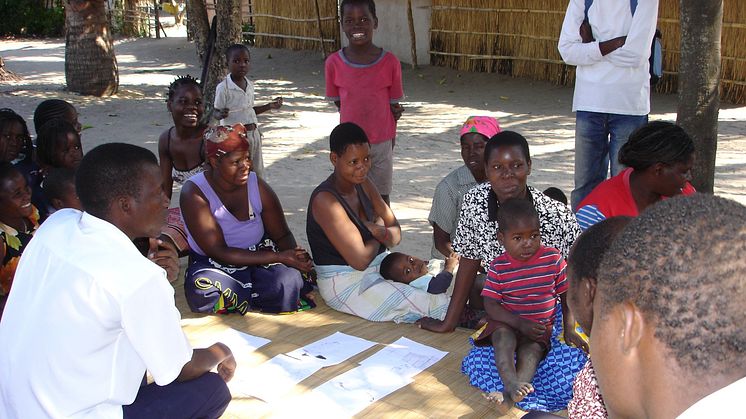
Press release -
Northumbria research into disaster resilience secures top 20 spot in UK university rankings
Research from Northumbria University, Newcastle, has been ranked among the top 20 most impressive examples in the UK for its contribution towards global development.
Of the 6,975 impact case studies submitted to the Research Excellence Framework (REF) – the system that is used to assess the research quality of all UK universities – judges singled out work by the Disaster and Development Network (DDN) at Northumbria.
The study was judged by the UK Collaborative for Development Science (UKCDS), a group of 14 UK Government departments and research funders (www.ukcds.org.uk/the-global-impact-of-uk-research.)
The Network’s key research influenced the disaster strategies of local governments in Southern Africa and South Asia, giving community groups a central role in risk identification and management.
Since its foundation at Northumbria in 2004, the DDN has been researching and facilitating the implementation of disaster risk reduction strategies to improve community resilience in some of the world’s poorest communities.
Researchers from the University worked with communities in Bangladesh, Mozambique, Nepal, Pakistan and Zimbabwe to gauge ideas and perspectives on the risks they face.
Using extensive surveys and interviews, they found that community involvement is vital to supporting local governments in identifying and managing disaster risks.
Professor Andrew Collins, who leads the DDN at Northumbria, said: “Disaster resilience is a critical part of sustainable development, helping communities to recover from disasters and maintain their livelihoods. Our work has included research and capacity building activities across 25 countries for local, national and international organisations.
“This work has gained international recognition, and its findings have influenced policies worldwide. To be ranked for global development impact among the country’s top-performing universities, including Cambridge and University College London, is a credit to staff at Northumbria.”
The DDN at Northumbria was the first, and for a long time the only, UK university research group to be an official partner in the United Nations process to decide a global agreement on disaster risk reduction.
In Mozambique, studies into infectious disease risks found that community involvement in disease control was more likely to encourage local participation in risk reduction. In response to the findings, local authorities set up community-centred disaster risk committees. The most successful of these started a resident cleaning initiative that’s reduced cases of diarrhoeal diseases from an estimated several thousand per year to less than 50.
Through their work in Pakistan and Nepal, the Northumbria researchers addressed the impacts of environmental hazards in the Himalayas. The DDN helped to establish the first disaster and development-focused centre in both countries, which, with support from their respective governments, integrated disaster reduction activities with local communities.
And In Zimbabwe, their research found that supporting human-rights and giving children a central role in activities were critical in building disaster-resilient communities – particularly in locations where HIV and AIDS has led to high numbers of orphans.
This work – supported by the Economic and Social Research Council, the Department for International Development and the Natural Environment Research Council – has influenced the disaster strategies of local governments, helping to protect the livelihoods of vulnerable communities residing in disaster-prone regions.
Northumbria’s contribution to this field is supported through its global MSc and doctoral alumni and annual Dealing with Disasters conference. The University runs Disaster Management and Sustainable Development courses as part of its Geography department, which recently achieved 91% ‘Overall Satisfaction’ in the National Student Survey 2015 – highlighting Northumbria’s focus on ensuring its students learn from the best in their fields.
For more information visit www.northumbria.ac.uk/ddn or www.ukcds.org.uk/the-global-impact-of-uk-research/communities-against-disasters.
Topics
Categories
Northumbria is a research-rich, business-focused, professional university with a global reputation for academic excellence. To find out more about our courses go to www.northumbria.ac.uk
If you have a media enquiry please contact our Media and Communications team at media.communications@northumbria.ac.uk or call 0191 227 4571.



